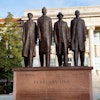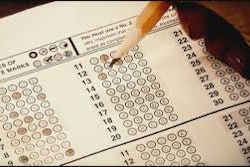Lincoln University of Pennsylvania — one of the nation’s oldest historically Black colleges and universities (HBCUs) — has been embroiled in a bitter fight following the sudden ouster of its president, Dr. Brenda A. Allen, by the school’s board of trustees.
Pennsylvania’s governor Tom Wolf and attorney general Josh Shapiro sued the university last week after they alleged that the school’s board of trustees violated state law and its own bylaws when it conducted a vote in private earlier this month on whether to retain Allen after her contract expired.
Allen, a 1981 Lincoln alumna, who has served as president of the rural HBCU since 2017, also sued the university, claiming in a 21-page lawsuit that the university breached her contract and decided to hold a secret vote not to extend her contract. In the lawsuit, she accused the board chair Theresa Braswell and vice chair Dimitrius Hutcherson of actively working to deny her a proper and fair evaluation and vote on an extension of her contract.
Allen’s lawyer, Riley Ross, said that 11 trustees voted to offer Allen a new contract and 11 voted against. However, five trustees appointed to the board by the commonwealth of Pennsylvania were not allowed to vote, prompting Wolf and Shapiro to intervene.
“My office has no position on who serves as president of Lincoln University, but we will take action to ensure the board follows the law,” said Shapiro. Lincoln, founded in 1854, is a state-affiliated institution. “Lincoln is a jewel of our Commonwealth’s heritage, and students, alumni, faculty and staff of the school that taught Langston Hughes and Thurgood Marshall must have confidence that their leadership complied with state laws.”
Shapiro said that during the trustees meeting held virtually earlier this month, the microphones of five trustees appointed by Wolf were “forcibly muted” by the host to prevent them from participating. “The same trustees were not included in the initial roll-call of the meeting; they were denied participation in the closed, executive-only portion of the meeting; they were also denied the ability to cast a vote during the meeting,” Shapiro added.
Shortly after the vote, Allen was barred from entering the building where her office is located. Her technological devices were reclaimed, her university email was deactivated and her photograph was removed from the university’s website. It’s unclear if she continues to live in the president’s residence on campus.





















